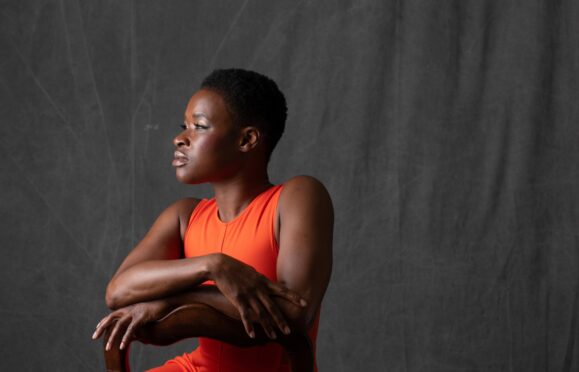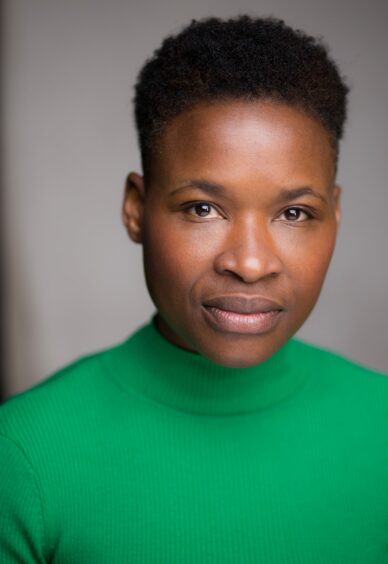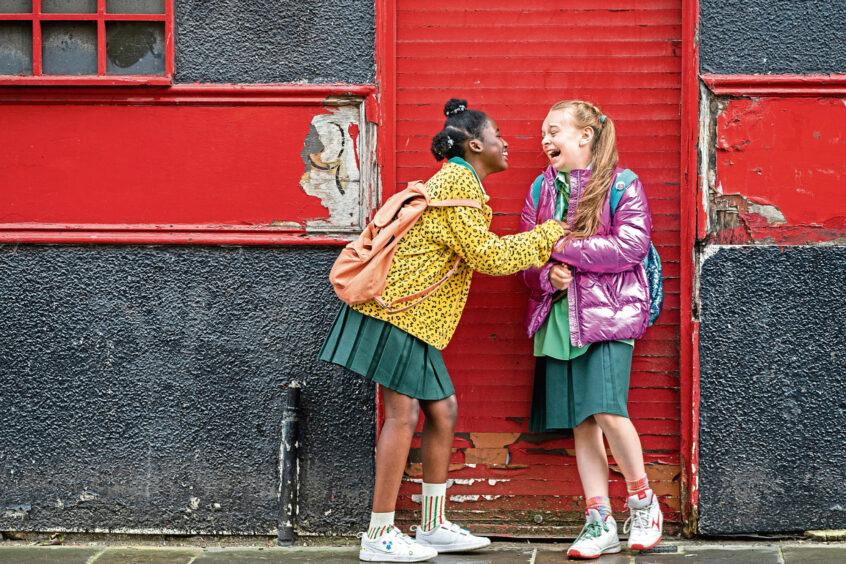
When the curtain goes up on the Glasgow Film Festival, it will, for the first time in its 19-year history, be with a movie made in the city.
The opening-night film is Girl, the debut feature from Adura Onashile, a writer, director and actress who had never visited Scotland until little more than a decade ago. When she did, she never left. So, when it came time to shoot her first movie, there was no doubt in her mind it would be based in her Dear Green Place.
“I had never been to Scotland but I knew about Glasgow because I’d done an experimental theatre course in Devon and Glasgow was one of the places where cutting-edge theatre was being made,” she said.
“I came up for a six-week theatre course and I didn’t leave. It wasn’t like I fell in love with anyone or anything like that; it was just a feeling. I felt at home and it felt full of possibilities for me straight away. I wouldn’t have been able to articulate it in that way at the time. I felt ready for a change but didn’t know what that change was.
“Looking back, it was a feeling of ease and a bit of wonder. People felt more down to earth than I had experienced in London. I felt a camaraderie. I haven’t looked back, to be honest. I’m not saying we’re perfect – we know we have our problems up here – but I just felt really at home and very honoured to live here.”
In Girl, 24-year-old Grace and 11-year-old daughter Ama find themselves isolated and afraid while living in social housing in Glasgow. The film examines the impact immigration can have on family relationships, which in turn shines a light on the wider issues of immigration. It is a film full of hope, frustration, claustrophobia and escape. It is also a story loosely based on Onashile’s own childhood.
“I was an only child brought up by my mum, and I’ve always been fascinated by that dynamic,” she said. “What happens in the film is much more extreme than what happened in my life, where I came to London as an immigrant at 11 and ended up in a part of South London that was very unfriendly and unwelcoming and had a particular effect on my relationship with my mum.
“Some good things came from that and some not-so-good things and I wanted to explore that aspect in the film. Grace’s past isn’t my mother’s past but that sense of intensity and claustrophobia is something I wanted to explore and which I felt resonated with me. My mum was a midwife and had to go out into the world; we had better circumstances than Grace and Ama.”
Onashile is an actor by trade who turned more and more to writing and directing over the years, although acting is still very much in her thoughts after her leading role as Medea last year in the National Theatre of Scotland’s acclaimed production of Liz Lochhead’s version of the classic play of terrible vengeance.
“Part of it was down to not being able to make a living out of acting,” she said. “I wasn’t getting the parts. I look back and I understand why. As an actor, maybe I didn’t have as much confidence as I do now. With acting, it’s the one thing you have got to have; you’ve got to believe you’re meant to be on that stage and playing that character. I was often wracked with insecurity being on display and I thought maybe this isn’t for me, and it felt much easier to a certain extent to be behind the scenes.
“After a few years of writing and directing, I gained more confidence in myself and of the work. So, when the possibility of Medea came along, I was really excited to audition for it and I wouldn’t have felt ready before.
“I wasn’t getting the work because I wasn’t quite good enough but now I believe I’m better and maybe that will change. I would like to continue acting. I don’t want to close it off completely, it just depends on the project.”
Much of her creative output has been issues-based, something she is unapologetic about but, by the same token, she is ready to move on to other areas of interest.
“I’ve gone through a bit of a cycle in terms of the work I’ve done recently and being ready to move on now. But coming to the UK when I was 11 was such a pivotal moment in growing up and so much of it was defined at the time by being foreign – not just black but also Nigerian – and I think some of my work has been about coming to terms with that and how it shaped me as a person, the good and the bad of that. Because there was definitely a lot of good, and I think – without realising it – my work has been about coming to terms with it.
“It becomes issues-based because you are trying to figure out how you feel about these things and maybe laying some ghosts to rest, about having a childhood like that, which on one hand felt isolating but on the other hand felt expansive; both things existed for me. In terms of making work in the future, I want to make all sorts of things and I think to an extent I’ve maybe scratched that itch.
“I’d like to get into TV as well, to direct homegrown dramas like Shetland, Outlander and River City. I don’t need to have written it to direct it. In terms of my own work, I’m looking at a story of Scottish characters in South America, so that’s a big idea and needs international collaboration.”
Onashile worked on Girl for the past five years, during which time she became a mum herself. The time spent on the movie has become a huge part of her life but the hard work paid off when it was chosen to be screened at the prestigious Sundance Film Festival, where it received its world premiere last month. Onashile was in attendance – a nerve-wracking experience.
“Sundance has always had this mystique to me and in absolutely no way did I think my film would get in there,” she admitted. “You just don’t dream that big sometimes. There were thousands of films that could have been chosen and ours was. I honestly don’t know what they saw but I’m glad they did and proud they did.
“I knew when I was making the film that all the crew was special but what I sometimes doubted was my ability to lead the ship and the fact we have the recognition of Sundance was like we’d done OK, and that felt really good.”
Despite the dreamlike quality of travelling over to Sundance in the US state of Utah and seeing her feature receive its world premiere, walking the red carpet in her adopted home city will be an equally memorable moment for Onashile.
“It’s on a par, and I know that is a weird thing to say, but this is home and when a Glasgow audience loves your work, they love your work,” she added. “They are not just
being polite. You know people are proud of the achievement and as a result they are behind the film and that means a lot, too. To bring it home and to have audience support feels absolutely amazing.”
Girl, Glasgow Film Theatre, Wednesday. Glasgow Film Festival, runs from March 1-12

Enjoy the convenience of having The Sunday Post delivered as a digital ePaper straight to your smartphone, tablet or computer.
Subscribe for only £5.49 a month and enjoy all the benefits of the printed paper as a digital replica.
Subscribe © SYSTEM
© SYSTEM © SYSTEM
© SYSTEM